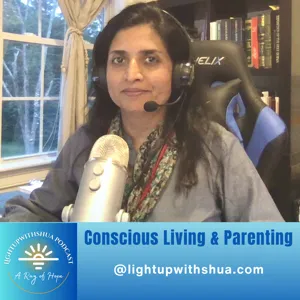Podcast Summary
Discoveries of the Oldest and Largest Confirmed Black Hole, Sea Turtle Sex Ratio, and Dietary Salt Intake: Scientists found the oldest and largest confirmed black hole, revealing insights into the universe's early stages. Sea turtles' sex ratio is affected by rising temperatures and pollution. Lowering dietary salt intake by a teaspoon may have health benefits.
Scientists have discovered the oldest and largest confirmed black hole, which is a supermassive one located far away from us, providing insights into the universe's early stages. Additionally, rising temperatures and pollution are affecting the sex ratio of sea turtles, and reducing dietary salt intake by a teaspoon may have potential health benefits. These are just a few of the intriguing stories in science, highlighting the importance of ongoing research and discovery. As the world's digital infrastructure company, Equinix enables businesses to dream up innovations that enrich our lives, while organizations like NPR and sponsors like BBC and Integrative Therapeutics provide us with knowledge and inspiration. In the realm of biotechnology, Amgen continues to push the boundaries of human health, delivering powerful new therapies to patients. Stay curious, and keep exploring the world around us.
New evidence for theory on black hole formation from gas clouds: The James Webb Space Telescope's detection of an ancient supermassive black hole supports the theory that these objects can form from gas clouds, providing evidence for a long-held hypothesis.
The James Webb Space Telescope is providing new insights into the early universe, allowing scientists to test theories about the formation of supermassive black holes. Until now, theories about the formation of these massive celestial objects have been largely speculative, but the detection of an ancient supermassive black hole provides evidence for one theory: that these black holes can form from the collapse of clouds of gas rather than from dying stars. Priya Natarajan, a theoretical astrophysicist at Yale, proposed this theory nearly 20 years ago, but it wasn't until the combination of data from the Hubble Space Telescope, the new James Webb Space Telescope, and the Chandra X-ray Observatory that she and her colleagues were able to provide evidence in favor of their theory. The discovery of this ancient supermassive black hole is just the beginning of unlocking the mysteries of the early universe.
Sea Turtles: Threatened by Temperature and Pollution: Climate change and pollution are causing an imbalance in sea turtle sex ratios, leading to more females. Warmer temperatures and pollutants disrupt hormones and skew the ratio, potentially impacting their survival.
Climate change and pollution are threatening the sex balance of sea turtles, leading to an overwhelming number of females. This is due to two primary factors: temperature and pollution. Temperature-dependent sex determination in sea turtles means that warmer temperatures result in more females. In some areas, like the northern part of the Great Barrier Reef, almost all hatchlings are female. Pollution, specifically heavy metals and organic chemicals, can also disrupt hormones and skew the sex ratio. Research has linked certain pollutants to a higher number of females in sea turtle nests. While this isn't a significant issue yet, it could pose a major threat to their survival as they struggle to find mates and reproduce. Conservation efforts are underway to mitigate these effects, such as using seawater to irrigate turtle nests and cool them down, creating a more balanced ratio of males and females.
Reducing sodium intake can lower blood pressure significantly: Cutting just one teaspoon of salt a day can lead to a significant decline in blood pressure, reducing the risk of stroke and heart disease.
Making small dietary changes, such as reducing sodium intake, can have significant impacts on health. Specifically, a new study published in the Journal of the American Medical Association found that cutting just one teaspoon of salt a day can lead to a decline in blood pressure comparable to taking medication. This is important because high blood pressure can contribute to health issues like stroke and heart disease. The study also noted that the body absorbs more water when there is excess sodium in the blood, which increases the amount of blood in the blood vessels and raises pressure. The study showed that these blood pressure-lowering effects were seen in just one week, even for people already on bloodium pressure medication. However, reducing sodium intake significantly, Americans currently consume an average of around 3,400 mg of sodium per day, and a teaspoon of table salt contains about 2,300 mg of sodium, so making this change would require a significant reduction in daily sodium intake.
Understanding the Impact of Sodium on Blood Pressure: Reducing sodium intake, even a little, can lower blood pressure for most people. Checking nutritional labels is important for packaged foods, but small reductions are still beneficial.
Reducing sodium intake, even if it's just a little, can help lower blood pressure for most people. Many of us get a significant amount of sodium from packaged and prepared foods, so checking nutritional labels is important. However, it's understandable that giving up favorite foods like French fries entirely might not be realistic for everyone. The researchers emphasize that any reduction in sodium intake is better than no reduction at all. A special thanks to NPR's Shortwave Plus listeners for their support, which makes this work possible. For regular listeners, consider joining as a subscriber to enjoy ad-free listening. This episode was produced by Rachel Carlson and Kai McNamee, edited by Christopher Taliada, Viet Le, and Rebecca Ramirez, fact-checked by Brett Hanson, and engineered by Patrick Murray, Ted Miebain, and Stu Rushfield. Senior leadership includes Beth Donovan and Anya Grundmann. I'm Regina Barber, and I'm Aaron Scott. Thanks for tuning into Shortwave from NPR. Support for this NPR podcast comes from Easycater, helping companies plan meals and events with online ordering and 24/7 live support. Learn more at easycater.com. Additionally, this message comes from NPR sponsor Capella University, offering flexible online degree programs with personalized support to help you achieve your goals. Imagine your future differently at capella.edu.





